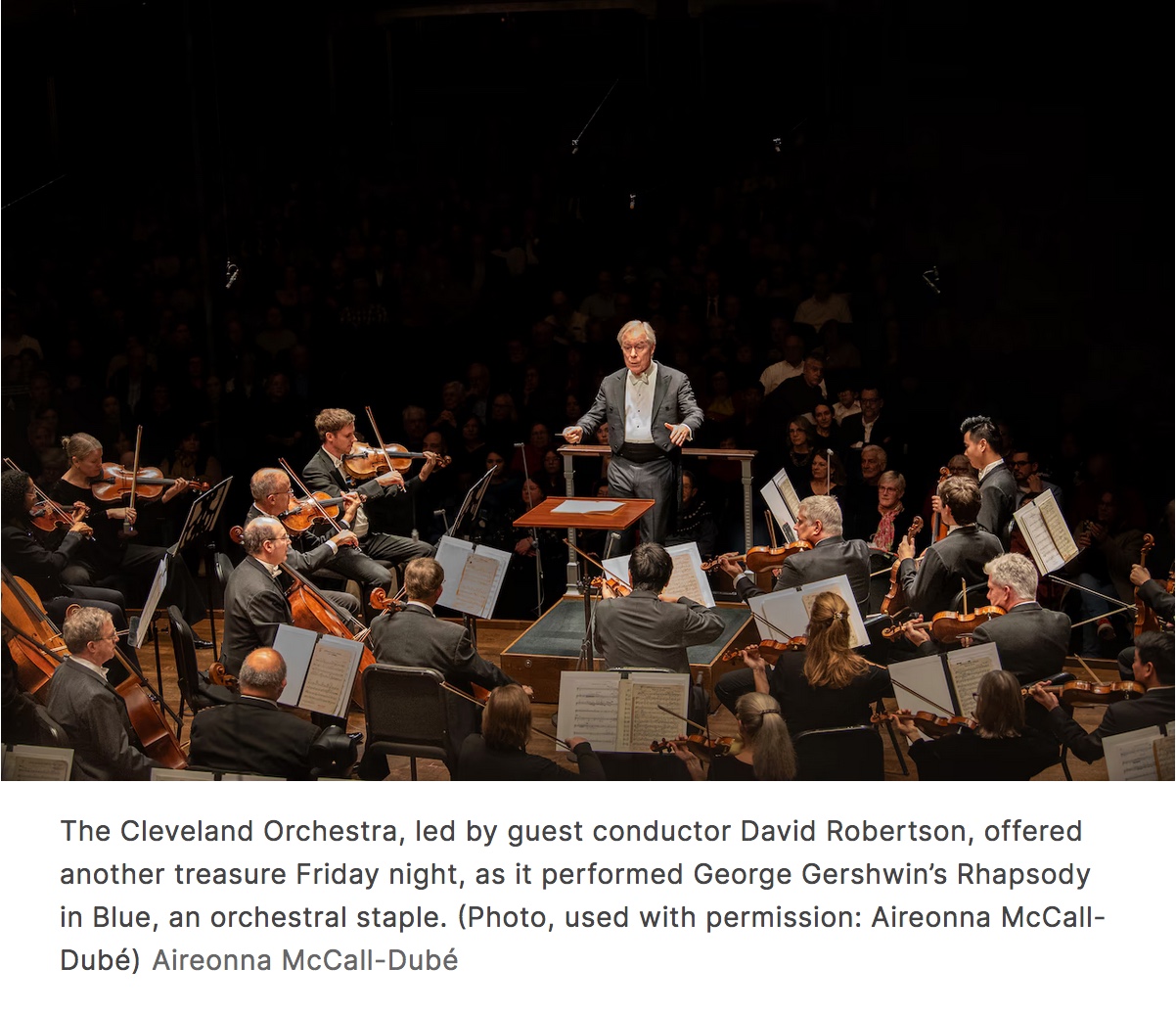by Stephanie Manning

CLEVELAND, Ohio — It’s an all-American extravaganza this holiday weekend at Severance Music Center. With Thanksgiving now in the books and December approaching fast, The Cleveland Orchestra has wasted no time gearing up its next few programs, many of them headlined by fan-favorites, to finish the calendar year on a high note.
On Friday, the marquee piece was George Gershwin’s Rhapsody in Blue, an orchestral staple — especially in 2024, which marks the work’s 100th anniversary. This isn’t the first time The Cleveland Orchestra has played it this year, as Béla Fleck performed his banjo-and-orchestra transcription at Blossom Music Center in July.
The version of Rhapsody played on Friday, which will be repeated at 8 p.m. Saturday and 3 p.m. Sunday, was not another reimagining. But sometimes it felt like one.
Listeners used to Ferde Grofé’s 1942 symphonic orchestration will have plenty to discover in his original jazz band version from 1924. The smaller, more intimate ensemble, led by conductor David Robertson, includes some uncommon orchestral instruments like saxophone and banjo.
Every musician contributed to this outstanding performance. Principal percussion Marc Damoulakis nimbly kept the rhythms going from the drum set, while clarinetist Daniel McKelway basked in the theatrical glissandos and pitch bends of the iconic opening solo.
Pianist Marc-André Hamelin’s playing was equally sunny and wistful, melding seamlessly into the group texture outside of his cadenzas. When those solo moments did arrive, he kept the energy up not by force, but by remaining impressively light and precise.
Hamelin returned after intermission for Duke Ellington’s New World A-Comin’. Now backed by the power of the full orchestra, the pianist dialed up his assertiveness to match the lush bed of strings, but his solo moments still felt warmly personal.
The Ellington and Gershwin works were bookended by music from another distinctly American voice — Aaron Copland, whose Suites from Appalachian Spring and The Tender Land both embrace the pastoral, from luscious soundscapes to quaint country dances.
From the podium, Robertson preferred sweeping, energetic motions, navigating Copland’s frequent changes in beat patterns with a dance-like flexibility.
The Suite from The Tender Land that closed the program is among Copland’s lesser- known works. And while the first movement is a little meandering, the third movement, by far the strongest, featured a poignant English horn solo before the strings swelled for a breathtakingly gorgeous climax.
The Suite from Appalachian Spring, gently adorned with woodwind solos, conjured visions of a tranquil life attuned to nature. The passionate “Simple Gifts” quotation, easily the work’s most recognizable melody, was appropriately stirring.
But as with Tender Land, the performance was memorable for its ending moments. The final sparkles from the glockenspiel faded into nothingness — a reminder that life’s gentle, unassuming moments are to be treasured.
Stephanie Manning trained as a bassoonist before becoming a correspondent for ClevelandClassical.com. As a freelancer, her writing has also appeared in The Montreal Gazette, CBC Montreal, and Early Music America
Published on ClevelandClassical.com December 5, 2024
Click here for a printable copy of this article


